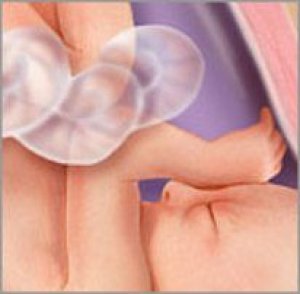
All iLive content is medically reviewed or fact checked to ensure as much factual accuracy as possible.
We have strict sourcing guidelines and only link to reputable media sites, academic research institutions and, whenever possible, medically peer reviewed studies. Note that the numbers in parentheses ([1], [2], etc.) are clickable links to these studies.
If you feel that any of our content is inaccurate, out-of-date, or otherwise questionable, please select it and press Ctrl + Enter.
Pregnancy: 30 weeks
Medical expert of the article
Last reviewed: 04.07.2025
 ">
">How the child grows:
The baby is 39 cm tall and weighs almost 1.5 kg. One and a half liters of amniotic fluid surrounds it, but this volume will decrease as the baby grows and takes up more space in the womb. Its vision continues to develop, although this process will continue after birth.
Important: Each baby's development is unique. Our information is designed to give you a general idea of fetal development.
Changes in the expectant mother
You may experience fatigue, especially if you have trouble sleeping. Also, due to hormonal changes, weight accumulation in the abdominal area, and weakening of the ligaments, your shoe size may increase.
Remember the mood swings of early pregnancy? The combination of uncomfortable symptoms and hormonal changes can lead to repeated emotional instability. It’s normal to worry and fret about the birth process, but if you’re feeling irritable or overstimulated, talk to your doctor. You may be one of the 1 in 10 women who experience depression during pregnancy.
Common fears about childbirth
Are you afraid of childbirth? You are not alone! Below are the most common fears and recommendations for eliminating them.
- I won't be able to cope with the pain.
Every fifth pregnant woman says that her main fear is pain during labor. Some women decide in advance to take painkillers during labor. With the right preparation and support, some women consider natural childbirth to be the best option.
- I will have an episiotomy.
An episiotomy is a cut made in the perineum to facilitate labor, performed just before labor to widen the vaginal opening. Some women experience tears in this area during labor, which require stitches. Talk to your doctor about how often and under what conditions they perform episiotomies, and how to avoid tears. There is some evidence that tears are less likely if you begin massaging your perineum about five weeks before labor.
- I will have a bowel movement during labor.
In a recent BabyCenter survey, 70 percent of women said they were afraid of having a bowel movement during labor, 39 percent said they actually had one, and only 22 percent were embarrassed by it. Trust me, you might not even notice. If you do have a bowel movement, your doctor will clean it out before you even know it happened.
- I will be subject to unnecessary medical intervention.
The best way to overcome your fear is to talk to your doctor about it. If you trust and respect your doctor, you can be sure that he or she will do everything possible to ensure that your birth goes smoothly.
I'm having a C-section. Since one in five women giving birth for the first time undergoes a C-section, this fear is understandable. Some mothers feel cheated, especially if they believe the surgery was unnecessary. If you are afraid of unnecessary surgery, discuss it with your doctor before the birth.
- I won't make it to the maternity hospital in time.
An emergency birth is extremely rare for first-time mothers, but if you're worried about it, check out these emergency home birth instructions.


 [
[